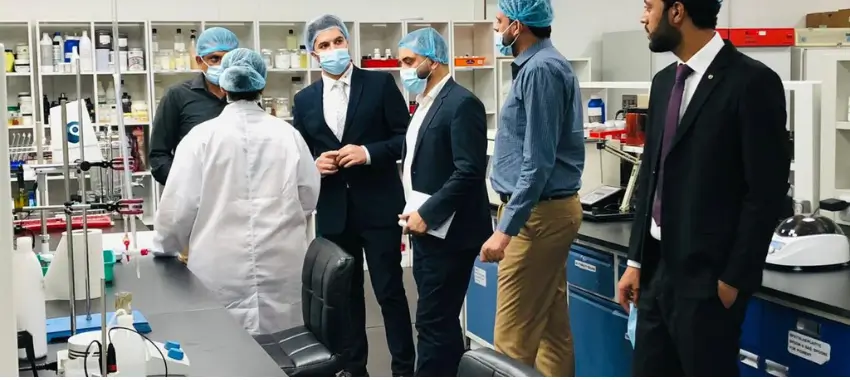
Halal certification is a critical factor for organizations that want to address the needs of Muslims. In Arabic, "halal" means "permissible," which inherently explains what is allowed according to Islamic law. Although halal certification is commonly associated with food and beverages, it includes other products and services, such as pharmaceuticals, cosmetics, packaged foods, refreshments, snacks, etc.
Halal guarantees that the food products or food production facility complies with Islamic laws' requirements. In other words, it ensures the consumers that the food has been prepared, processed, stored, and delivered while demonstrating compliance with the principles and guidelines in the Quran and Sunnah. Halal is essential to Muslim buyers who stick to Halal dietary laws and want to know what products they use & eat. It is permissible and does not have any prohibited substances.
Halal certification requirements are more than just a dietary guideline. It is an overall eating lifestyle per the Quran & Sunnah or Islamic law (Shariah). Concerning Halal standards, to get Halal certification, organizations need to ensure that halal products are free from any nonhalal items, i.e., substances or ingredients extracted from a haram/forbidden animal or ingredient. Pork & its by-products are primarily Haram, as it is mentioned in the Quran. In addition, there is the categorization of haram animals, like beast animals who eat flesh are declared Haram. Blood is Haram. Similarly, animals that are not slaughtered as per Islamic rituals are called Haram. All intoxicants, such as alcohol, are also Haram.
Halal certification assures Muslims that the items they buy and consume are within the Islamic dietary Halal needs. It creates trust between producers and those folks who drink, as the certification is a sign that the items have been through scrutiny to make sure they are halal!
Why Is Halal Certification Important For Your Business?
Getting HALAL certification opens the door to more business opportunities. It means your business can tap into the growing Muslim buyer group. Moreover, you can participate in product trading worldwide with countries with specific rules concerning Halal products.
Organizations may have the following benefits by having halal certification in their organizations,
- Access to international Markets: More than 1.8 Billion Muslims are living on the planet Earth and are very sensitive to halal dietary laws by Islam. In some countries, they are in the majority population. Still, in many countries, they are in the minority, so where they are in fewer numbers, the availability of halal food becomes a critical question for them. Here comes the market segment; they rely on products declared halal and produced by halal-certified organizations. So, any organization that is Halal certified can capture this segment of the market where Muslims are living in minority numbers.
- Consumer Confidence: For consumers sensitive to the halal status of products, it's very easy for them to see the halal logo on the product, and they can consume it without any worries. It creates trust and loyalty among consumers towards the organization.
- Insurance of Quality products: Halal does not only address the religious beliefs and nonhalal contamination of products. It also addresses the hygienic conditions of the product. HACCP is a standard for food safety, and food safety is a prerequisite to getting the halal certificate. It means that an organization must produce food products per the food safety principles to get the status of Halal certification. The organization must ensure that Biological, physical, chemical, and halal hazards are not present in a product where food is considered halal-certified.
Prominent HALAL Certification Bodies:
There are different halal certification bodies in different regions. Prominent are mentioned below,
- Majlis Ugama Islam Singapura (MUIS) by Singapor
- Halal Food Authority (HFA)
- Jabatan Kemajuan Islam Malaysia (JAKIM) by Malaysia
- Islamic Food and Nutrition Council of America (IFANCA) by USA
- Al Waiz certification in Pakistan
Above mentioned are a few platforms that are very popular in the Muslim community.
Benefits OF Having Halal Certification
It gives Muslim consumers peace of mind knowing a food or beverage item follows Islamic Law and is Halal. It also promises customers that the food meets good health and sanitation benchmarks. For businesses wanting the Halal food certification for the first time, there is an excellent chance to get more customers. Because of that extra independent verification, it can draw in Muslim and non-Muslim customers choosing Halal.
The Halal certificate is a major passport to an international trade!
How Can You Get HALAL Certificate
So, at Qdot, our professional Halal consultants can guide you through the whole Halal certification services process from the beginning to the end until you achieve HALAL Certification.
Our team of expert ISO consultants in UAE, Qatar, Pakistan, KSA, Oman, Kuwait, and Bahrain is skilled in specific ISO standards. We maintain the highest quality benchmarks in our business dealings.
